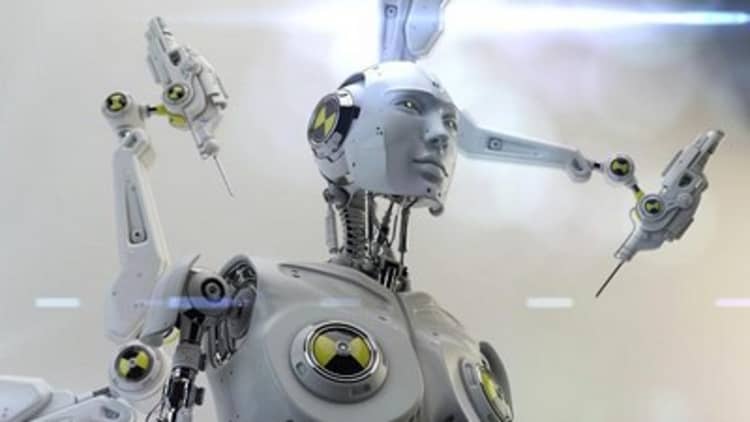
A scientific think tank that champions the development of artificial intelligence is calling for more research to avoid "potential pitfalls" of the technology.
In an open letter on its website, the Future of Life Institute (FLI)—an initiative of scientists and engineers operating under the auspices of the Massachusetts Institute of Technology—said the development of sentient machines has huge potential benefits.
Meanwhile, high profile figures such as Tesla founder Elon Musk and Stephen Hawking have issued emphatic warnings against AI, calling the technology a potential menace that could extinguish human life.
Read More Musk: 'Demon' Skynet almost self aware
In its open letter, however, the FLI tacitly bowed to those concerns.
Although the organization insisted that AI could potentially "eradicate disease and poverty," it called for wide ranging inquiry into how the technology gets developed in order to "maximize its societal benefits" without effectuating some of the worst case scenarios proposed by its opponents.
"We recommend expanded research aimed at ensuring that increasingly capable AI systems are robust and beneficial: our AI systems must do what we want them to do," the FLI wrote on its website.
The FTI's call comes as opponents have issued increasingly apocalyptic warnings about technology that can operate without human input. Musk has been an implacable critic of AI, echoing the concerns of a number of philosophers and scholars.
The world has become increasingly automated, with robots and automated solutions encroaching on roles once dominated by humans.
Read MoreStephen Hawking warns A.I. threatens mankind
Those developments, however, have led to dislocated workers and stoked concerns that people are becoming too complacent about the risks associated with letting machines encroach on traditional human roles.
The FTI says it believes "research on how to make AI systems robust and beneficial is both important and timely, and that there are concrete research directions that can be pursued today," it added.


